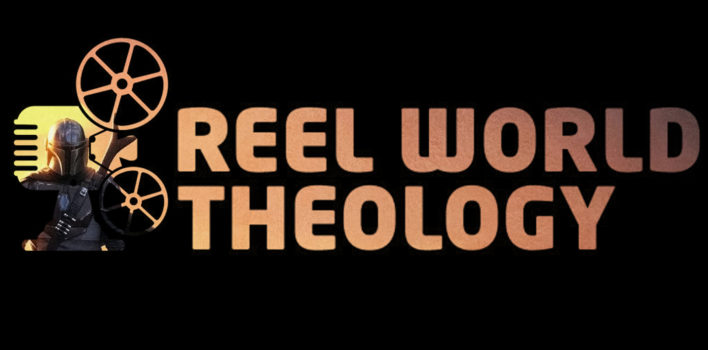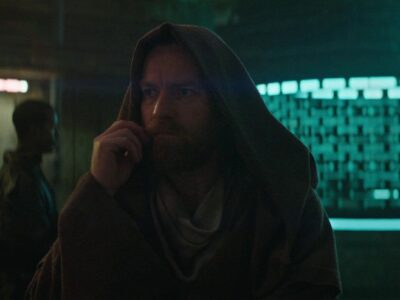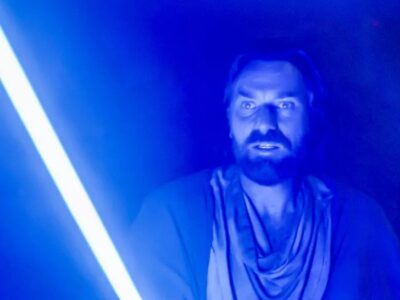The Mandalorian Chapter 5: A Reputation to Keep
Coming back to Luke’s hometown is like coming home at last. The Mandalorian as a whole lives on nostalgia; while other parts of the Star Wars canon are advancing the story of the Force and the universe it balances, this show—particularly “The Gunslinger”—reminds us of the galaxy far, far away that we fell in love with long ago. When I saw a desert planet in front of Mando’s ship, I thought to myself, “well, that looks familiar. But I’ve been fooled by Geonosis…and by Jakku…and by Crait, and Arvala-7, and Utapau, and Nevarro, and how many dang desert planets ARE there in this galaxy anyway?”
But the planet was indeed Tatooine; and not only that, the port was Mos Eisley, the “wretched hive of scum and villainy” itself! Some things have changed, of course; the place where Luke sold his speeder seems to be a memorial to all the brave stormtroopers who died on Tatooine. The cantina that infamously “doesn’t serve their kind here” is now, in fact, run by the very types of beings it tried to keep out. And is one of those bartender droids the supervisor in charge of droids at Jabba’s Palace?
While the direction took a strange sort of pace, like Filoni’s last stab at the director’s chair, the characters were interesting and broad and pulpy, just like Star Wars characters should be. Ming-Na Wen is always a welcome addition to any cast. And those boots at the end! Could it be…? While the episode doesn’t reach quite the same heights as the rest, it was quite a lot of fun and Baby Yoda was cute; I’m still engaged and excited to see what comes next.
Incidentally, spoilers are what comes next for this article. So go get Disney+ already!
Making a Name
You have to have one heck of a reputation to scare a guy who took on a whole garrison of Baby Yoda kidnappers, climbed a moving sandcrawler, faced a mudhorn with a butter knife, didn’t flinch at fighting the entire Bounty Hunter’s guild, and saw a solo fight against an AT-ST as a minor inconvenience.
Fennec Shand has that reputation.
“If you go after her, you won’t make it past sunrise,” Mando tells Toro Calican. It’s not because she’s particularly big or imposing; he knows what she’s done, and that’s all he needs to fear her. Her reputation precedes her, and that reputation is a story.
When the God of the Old Testament introduces Himself to the Israelite people, the name He uses is not a common one; sometimes He says, “I Am Who I Am.” Sometimes, He’s “the God of Abraham, Isaac, and Jacob.” But often, He introduces Himself with an accounting of His actions. In Exodus 34, the name of God takes up almost two whole verses:
The LORD passed before him and proclaimed, “The LORD, the LORD, a God merciful and gracious, slow to anger, and abounding in steadfast love and faithfulness, keeping steadfast love for thousands, forgiving iniquity and transgression and sin, but who will by no means clear the guilty, visiting the iniquity of the fathers on the children and the children’s children, to the third and the fourth generation.”
—Exodus 34:6–7, ESV
God’s identity is what He does; He has mercy, He loves and forgives; but those who hate Him are in danger. Those who would stand in His place, who would try to take for themselves the glory that only God is due, should live in fear.
Shand can kill Calican. Mando was right, the novice didn’t make it past a sunrise; he was just off by one sunrise. But God’s reputation is bigger and more terrifying even than hers.
It’s in His name.
Stealing a Legend
Isn’t that the same way for us, too? Our identity, too, can be boiled down to our actions and reactions in life. Our identity is not in what we look like, but in what we do; our reputation is not in our will, but our actions.
Our reputation is what we’ve done, but Calican is trying to short-circuit that process; to become a legend before he’s put in the time to actually do so. He’s trying to attain the story tied to Shand’s name, but in a false and dangerous way; he gives up a certain bounty for an uncertain one; and he gives up an ally on a dangerous planet in favor of a fleeting chance of glory. The allure of fame is his downfall.
Similarly, when we try to take the glory that God has—despite the fact that, not only haven’t we earned it, but we can’t earn it—it ends in our complete downfall. Like Calican, we’re trying to join an elite group; the Bible calls it a “narrow gate” (Matthew 7:13-14). So we pretend we’re a big deal. We pretend we’re calling the shots. We wave around what we think is an impressive resume, or wallet, or pedigree. A lot of our world is built around our farcical attempts to be in charge.
It always ends the same way: with us blinded, falling, and losing everything. We can’t short-circuit that glory. It doesn’t belong to us, and so our reputation will always be too small to get us into the club we want to be in. No matter how much we do, no matter how impressive we are in an Earthly sense, we can’t earn our way in.
But the God who does have that reputation, who does hold that name, sent His Son down to save us instead of shooting us where we stand. His Son had the reputation and the glory, but gave it up to come down, snatch us from the jaws of catastrophe, and bring us along with Him as He saved the rest of the world, too.
Long after your name goes out of the world, it will still be on His heart and hands; and the reputation of the Hunter who tracks us to save us and set us free will echo in our minds.








Pingback: The Mandalorian Chapters 7 and 8: Failure’s Favor | Reel World Theology